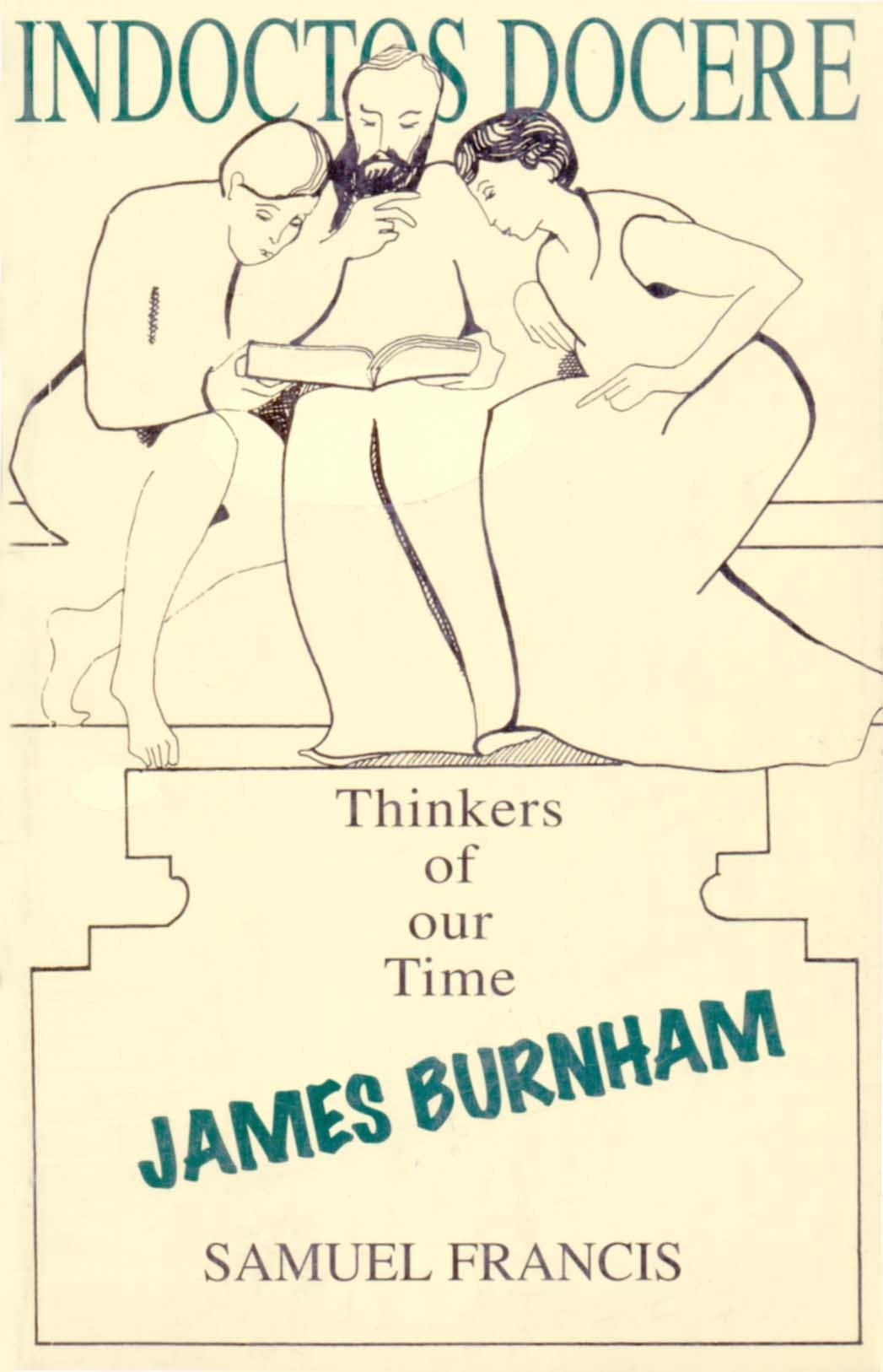James Burnham, The New Class, And The Nation-State
By Sam Francis
08/23/2001
Although James Burnham was best known during his life as an anti-Communist theorist of the Cold War and a founding editor of National Review, his political thought remains important to those interested in the main theme of VDARE.com, the "National Question."

Burnham’s pre-Cold War political theory revolved around the idea of elites as socially natural and inevitable groups and reflected the influence on him of the "classical elitist" school of political sociologists, which he treated in The Machiavellians (1943). His best-known book, The Managerial Revolution (1941), analyzed and prophesied many of the trends in American and other Western societies toward the emergence into power of a "new class" (a phrase he repeatedly used) that has little commitment either to traditional social and political institutions or to the very existence of the nation-state. [VDARE comment: Click here for a "conservative" example — Wall Street Journal Editor Bob Bartley.] Although immigration and the movement toward a globalist "One-World" order in which the nation-state no longer exists and borders have vanished were not major issues during Burnham’s writing career, much of his work focused on the early manifestations of such thinking and warned against it, while explicitly defending the concept of the nation.
"In real life," Burnham wrote in 1967, "men are joined on a much less than universal scale into a variety of groupings — family, community, church, business, club, party, etc. — which on the political scale reach the maximum significant limit in the nation. Since there is at present time no Humanity or Mankind (socially and historically speaking), there cannot be a World Government — though conceivably there could be a world empire."
Burnham was also notable for what is often described as his "cold-blooded" and realistic analysis of power relations — among nations but also among social classes, political parties, and individuals. Despite the end of the Cold War and the passing of the anti-communism that Burnham espoused, many aspects of his thought remain relevant to political and social affairs of the present day. In James Burnham, a revised and expanded version of my earlier treatment of his thought in Power and History (1984), I have tried to address these and other themes that readers of VDARE.com will regard with interest. (Or directly from Claridge Press)
August 23, 2001
